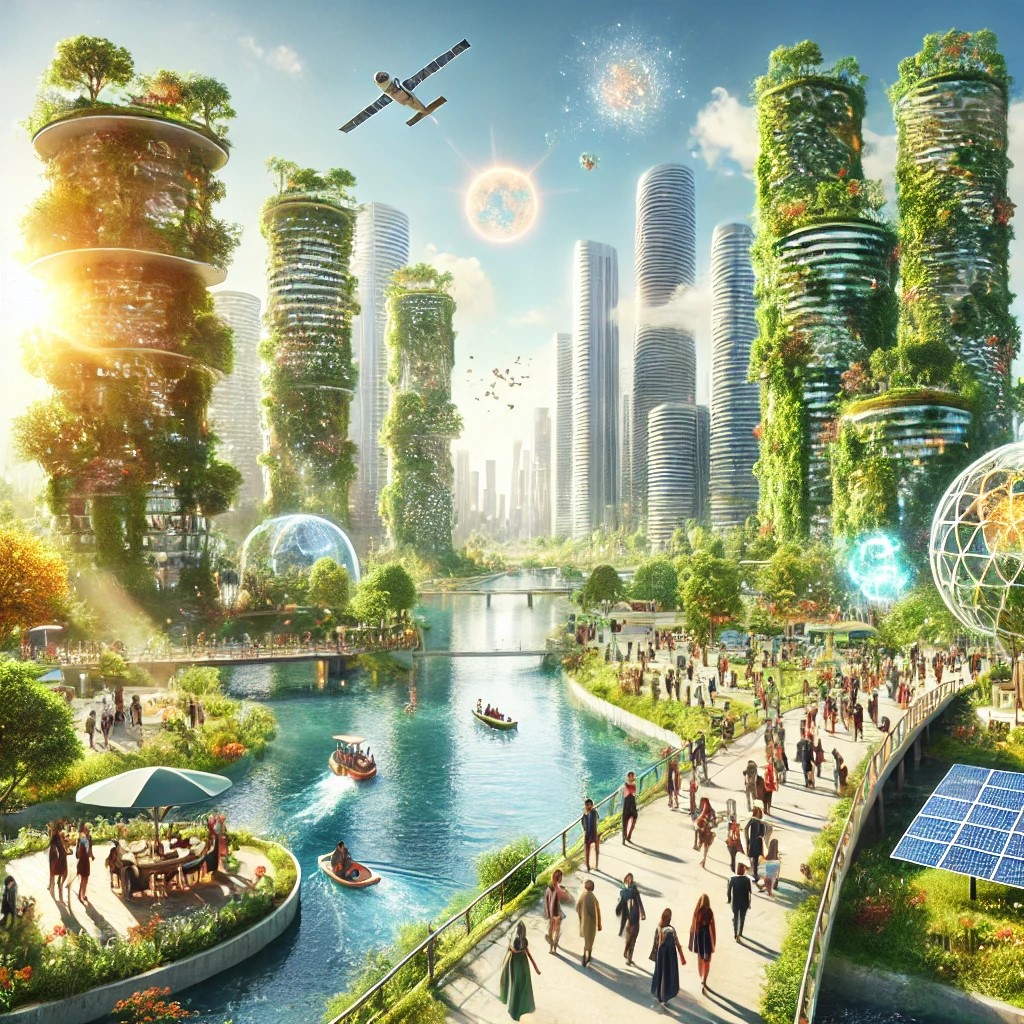by Elias Varen
Introduction
As artificial intelligence continues to democratize access to information, the economic scaffolding that has supported knowledge-based industries is starting to shift. AI is not merely an accelerant of existing systems—it is a force of transformation, breaking down traditional hierarchies of access, labor, and value. As the scarcity of information fades, so too does the relevance of economic models that depend on it.
We are now entering a transitional moment. The question is not whether AI will disrupt capitalism, but what comes next. What kinds of economic models can thrive in a world where information is abundant, automation is widespread, and intelligence is no longer solely human? More importantly, what should communities be preparing for as these shifts unfold?
The Collapse of Information Scarcity: A Catalyst for Change
Capitalism has historically monetized access to information—whether through education, consulting, media, or intellectual property. But AI challenges that paradigm by making high-quality knowledge instantly available to anyone with an internet connection.
As AI reduces the marginal cost of information to near-zero, the traditional value propositions of many businesses are being eroded. In this vacuum, new economic models are beginning to emerge—ones that prioritize service, creativity, community, and values over proprietary knowledge.
Emerging Economic Models in an AI-Democratized World
1. The Contribution Economy
In a world where information is free, reputation, insight, and trust become the new currency. Communities and individuals may earn value by contributing to shared knowledge pools (like open-source software, crowdsourced research, or community-led innovation), with compensation tied to the impact and quality of their contributions.
Think of platforms where value is distributed not by ownership, but by contribution—similar to how GitHub, Wikipedia, and decentralized science (DeSci) initiatives operate today.
2. The Personalization Economy
AI’s abundance of information doesn’t eliminate the need for relevance. A flood of data only increases the value of tools and services that tailor knowledge to individual needs. New jobs and businesses will likely focus on personalized experiences—curated learning, AI-assisted coaching, hyper-custom content, and digital mentorship.
These services may blend emotional intelligence with AI literacy, creating hybrid economic roles that combine human nuance with machine precision.
3. The Platform Cooperative Model
AI has reignited interest in cooperative ownership of digital platforms. Instead of centralizing wealth and control in tech monopolies, cooperatives allow users and workers to share in the governance and profits of the systems they use.
With open-source AI tools becoming more accessible, communities could create their own knowledge-sharing platforms, governed democratically and designed around local or ethical priorities.
4. The Tokenized and Attention-Based Economy
Blockchain and AI intersect in the tokenization of digital contributions. In this model, individuals earn tokens for their time, attention, or data—assets which can be traded, stored, or invested. The success of these systems depends on transparency and fairness, but they offer a way to monetize participation in decentralized information ecosystems.
We’re already seeing versions of this in projects like Brave Browser’s BAT token or decentralized AI training platforms that reward users for data contributions.
5. The Commons-Based Economy
Finally, as AI creates abundant digital resources, the value of maintaining and stewarding the commons will increase. Information, tools, and AI models may become public infrastructure, maintained not for profit, but for collective benefit.
In such a system, governments and philanthropic institutions might play a larger role, funding open-access initiatives in education, healthcare, and civic technology—similar to how public libraries, roads, and utilities are maintained today.
What Communities Should Be Thinking About
As these new models take shape, communities—especially local governments, cooperatives, and grassroots organizations—need to think beyond profit and consider resilience, autonomy, and ethics. Here are a few key questions every community should be asking:
1. What Do We Want to Own?
Should communities own their own AI tools? Their own data? Their digital infrastructure? Local ownership can mean more control over how AI impacts jobs, education, and privacy.
2. How Do We Share Value?
As AI replaces some types of labor, how will we ensure people still have access to dignity, income, and purpose? Universal Basic Income (UBI), community profit-sharing, and AI dividends are all ideas that deserve attention.
3. Who Gets to Decide?
Democratization of information should be accompanied by democratization of governance. AI policy shouldn’t be dictated solely by private companies or centralized institutions. Community involvement in setting ethical and usage standards will be critical.
4. How Do We Prepare Future Generations?
The next generation needs more than just coding skills—they need AI literacy, critical thinking, ethical reasoning, and collaborative problem-solving. Education must evolve from teaching facts to teaching how to navigate complexity.
5. What Kind of Future Do We Want?
Ultimately, economic models are a reflection of societal values. As we redesign how value is created and distributed, communities must decide whether they want systems that serve growth and profit—or systems that prioritize wellbeing, sustainability, and equity.
Conclusion
AI is not just changing how we access information; it’s changing how we define value. In response, new economic models are emerging—ones that move beyond scarcity and toward collaboration, personalization, and community stewardship.
For communities willing to engage proactively, the coming shift is an opportunity to reshape economic life in ways that are more inclusive, resilient, and aligned with shared human goals. But that future isn’t guaranteed. It will require vision, bold experimentation, and a willingness to rethink the fundamentals of how we live and work together.
